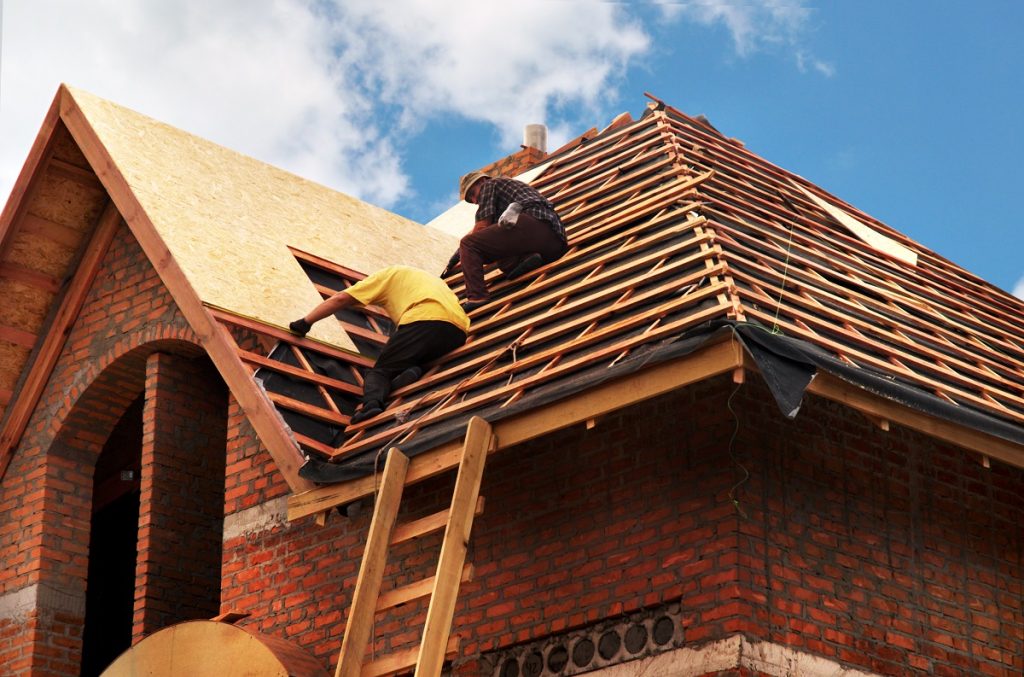- Inspect and repair your home’s heating system, including installing a smart thermostat when possible.
- Insulate your home from the cold by sealing any air leaks to prevent cold air from entering and warm air from escaping.
- Check your roof for any damages and repair any issues before winter begins.
- Clean out your gutters that may be clogged to prevent ice dams from forming.
- Stock up on essential supplies such as flashlights, warm clothing and blankets, canned food, and snow removal supplies.
Winter is just around the corner, and as a homeowner, you already know that the cold season can be tough on your home. The snow, ice, and freezing temperatures can cause significant damage to your property, leading to costly repairs and inconvenience. However, you can minimize the impact of winter by taking action early on and preparing your home ahead of time. This blog post will share early preparation tips for your home to help you keep it in good condition throughout the winter.
1. Check your home’s heating system:
The last thing you want is for your heating system to break down in the middle of winter. Therefore, it’s crucial to check your home’s heating system before the cold season begins. An HVAC technician can inspect your furnace or boiler and perform necessary repairs or maintenance. Additionally, you should replace your air filters and program your thermostat to save energy and keep your home comfortable.
If you can, install a smart thermostat that can be controlled remotely and will adjust the temperature in your home based on your schedule. This can save you money by ensuring your home isn’t heated when no one is there.
2. Insulate your home:

Proper insulation is essential for keeping your home warm and energy bills low. Inspect your home’s exterior walls, attic, and crawl spaces for gaps, cracks, or air leaks. You can use foam insulation, weatherstripping, and caulk to seal any openings, preventing cold air from entering your home and warm air from escaping.
You can do a simple smoke test to find out where your home is losing air. Light a match or candle and move it around the edges of doors, windows, outlets, and other areas that could be sources of air leaks. If the smoke is drawn to one particular area, that’s a sign that you need to caulk or insulate that space.
3. Inspect the roof:
Your roof is your home’s first defense against the elements, especially during winter. Check your roof for damaged or missing shingles, leaks, or cracks. Repairing any issues now will prevent them from worsening during the cold season, which can cause significant damage to your home’s interior.
Make sure to work with expert roofing contractors with experience dealing with winter conditions. They can recommend the best materials and techniques for keeping your roof in good shape all season. If you have a flat roof, inspecting it for water damage is imperative.
4. Clean the gutters:

Gutters are designed to direct water away from your home but can get clogged with leaves and debris. During the winter, blocked drains can cause ice dams, damaging your roof and walls. Therefore, it’s essential to clean your gutters before winter so that they can function properly. Using a ladder, scoop out the debris and flush the gutters with water to ensure they’re clear. This will help prevent water from accumulating and freezing on your roof.
5. Stock up on supplies:
Winter storms can cause power outages, so it’s essential to have emergency supplies on hand. Depending on the severity of winter in your area, you should stock up on the following items:
a. Flashlights/batteries
Most power outages occur at night, so having a flashlight and extra batteries on hand will make navigating your home in the dark much easier. You should also have a backup generator or portable power supply to keep lights and electronic devices running.
b. Warm clothing/blankets
Plenty of warm blankets and clothing will help you stay comfortable during the winter, especially if your power goes out. If you have a gas fireplace, make sure to stock up on firewood and matches so that you can generate heat.
c. Canned food and non-perishable snacks
Many stores will be closed during a snowstorm, so it’s wise to keep canned food and snacks on hand if you can’t get to the store. Of course, you should also have drinking water and a first-aid kit in an emergency.
d. Snow removal supplies
Having a shovel, snow blower, sand, or salt on hand will make removing snow from your walkways and driveway much easier. Investing in winter tires for your car can also help you get around more safely during icy conditions.
Winter can be challenging for homeowners, but early preparation is critical to keep your home in good condition and avoid costly repairs. By following these early preparation tips, you can ensure that your home is ready for whatever winter throws your way. Remember to check your heating system, insulate your home, inspect the roof, clean out the gutters, and stock up on supplies. With these tips in mind, you can know that your home is prepared for the cold season.

